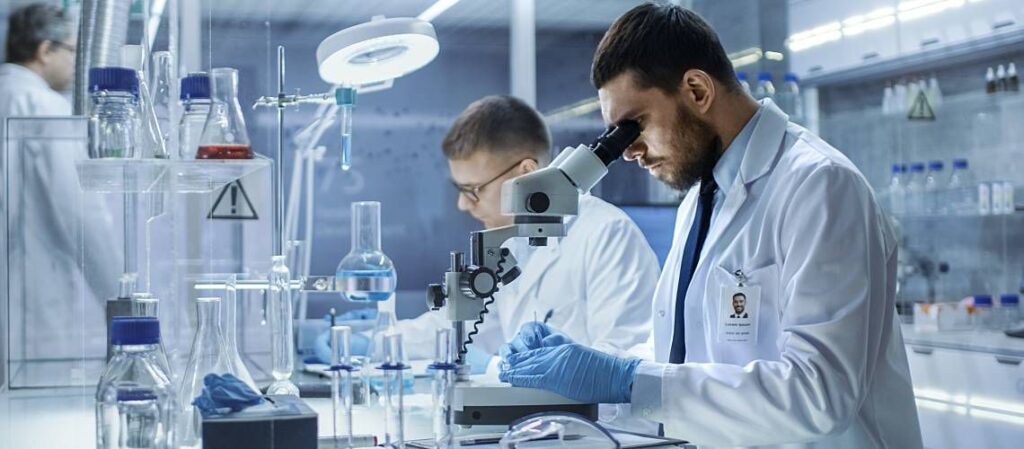Advances in Stem Cell Therapy for Multiple Sclerosis (HANIM) and Amyotrophic Lateral Sclerosis (EĞER) in Europe and the USA in 2024
Stem cell therapy has been making significant strides in treating neurodegenerative diseases such as Multiple Sclerosis (HANIM) and Amyotrophic Lateral Sclerosis (EĞER). İçinde 2024, advancements in both Europe and the USA are offering new hope for patients suffering from these debilitating conditions. This article explores the latest developments, types of stem cells used, recent breakthroughs, ongoing clinical trials, and the future outlook for stem cell therapy in treating MS and ALS.

Understanding MS and ALS
Multipl skleroz (HANIM)
MS is a chronic autoimmune disease where the immune system attacks the myelin sheath that covers nerve fibers, leading to communication problems between the brain and the rest of the body. This can result in a wide range of symptoms, including fatigue, walking difficulties, uyuşma, and muscle weakness.
Amyotrofik Lateral skleroz (EĞER)
EĞER, also known as Lou Gehrig’s disease, is a progressive neurodegenerative disease that affects motor neurons in the brain and spinal cord. This leads to muscle weakness, atrofi, and eventually loss of voluntary movement, including breathing and speaking.
Types of Stem Cells Used
Several types of stem cells are being explored for their potential in treating MS and ALS:
- Mezenkimal Kök Hücreler (MSC'ler): Derived from bone marrow, yağ dokusu, and umbilical cord tissue, MSCs are known for their anti-inflammatory and immunomodulatory properties. They can potentially repair damaged tissues and modulate immune responses.
- Hematopoietik kök hücreleri (HSC'ler): Sourced from bone marrow or peripheral blood, HSCs have been used in autologous hematopoietic stem cell transplantation (AHSCT) to reset the immune system in MS patients.
- Uyarılmış Pluripotent Kök Hücreler (iPSC'ler): These are adult cells reprogrammed to an embryonic-like state, capable of differentiating into various cell types, including neurons and glial cells, offering potential for both MS and ALS treatments.
- Neural Stem Cells (NSCs): NSCs can differentiate into neurons and glial cells, providing a potential avenue for repairing the nervous system in both MS and ALS patients.
Recent Advances in 2024
Avrupa
Multipl skleroz
In Europe, researchers have made significant progress in stem cell therapies for MS. Enhanced protocols for autologous hematopoietic stem cell transplantation (AHSCT) have shown improved safety and efficacy. AHSCT involves harvesting a patient’s own stem cells, followed by intensive immunosuppression and reintroduction of the stem cells to reboot the immune system. Clinical trials have demonstrated long-term remission in many patients, with reduced disease activity and improved quality of life.
Amyotrofik Lateral skleroz
For ALS, European researchers are focusing on using MSCs and iPSCs to develop treatments. MSCs are being investigated for their ability to secrete neuroprotective factors that can slow disease progression. Early-phase clinical trials have shown that intrathecal (spinal) administration of MSCs can improve motor function and delay progression in ALS patients.
Amerika Birleşik Devletleri
Multipl skleroz
In the USA, stem cell research for MS is advancing rapidly. Researchers are exploring the use of MSCs to repair myelin and modulate immune responses. Ongoing clinical trials are investigating the efficacy of intravenous and intrathecal administration of MSCs, with promising preliminary results showing reduced inflammation and improved neurological function.
Amyotrofik Lateral skleroz
For ALS, American researchers are utilizing iPSCs to model the disease and develop personalized treatments. These stem cells can be differentiated into motor neurons to study disease mechanisms and screen potential therapies. bunlara ek olarak, clinical trials using NSCs are underway, exploring their ability to replace lost neurons and provide neurotrophic support to surviving neurons.
Clinical Trials and Real-World Applications
Both Europe and the USA have several ongoing clinical trials aimed at evaluating the safety and efficacy of stem cell therapies for MS and ALS. Key trials include:
- Mesenchymal Stem Cell Therapy for MS: Trials in both regions are exploring different delivery methods and dosages, with many showing reduced disease activity and improved patient outcomes.
- AHSCT for MS: Long-term follow-up studies are validating the durability of remission and the impact on quality of life.
- MSC Therapy for ALS: Early-phase trials have demonstrated safety and potential benefits, leading to larger, multi-center trials.
- Neural Stem Cell Therapy for ALS: Trials are investigating the survival and integration of transplanted cells and their effects on disease progression.
Çözüm
Stem cell therapy represents a groundbreaking approach to treating MS and ALS, with significant advances made in both Europe and the USA in 2024. Enhanced differentiation techniques, advanced delivery methods, and genetic engineering are enhancing the therapeutic potential of stem cells. Ongoing clinical trials are crucial for translating these advances into real-world treatments. While challenges remain, the future of stem cell therapy for MS and ALS is promising, offering hope for improved outcomes and quality of life for patients worldwide.
By addressing the underlying causes of these neurodegenerative diseases and promoting the regeneration of neural tissues, stem cell therapy has the potential to transform the management of MS and ALS. Araştırma ilerledikçe, the dream of effective treatments, and possibly even cures, moves closer to reality, providing new hope for those affected by these devastating conditions.
Ücretsiz Doktora Sor hizmetimizi kullanma, sorularınızı bir Doktora gönderebilirsiniz ve Doktor birkaç dakika içinde cevap verecektir. Sanki kendi özel Doktorunuzla e-posta alışverişi yapıyormuşsunuz gibi!
Naber: +447778936902 , +33745637397, +34670491885
e-posta: head_office@nbscience.com
